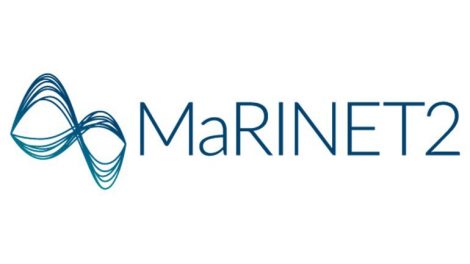
Sustainable Marine’s New Tidal Turbine Rotors pass ‘20-year Test’ in MaREI at NUI Galway
Sustainable Marine’s new turbine rotors have proven they can survive for two decades in the field, following rigorous tests at a leading European marine energy centre.
The firm joined forces with MaREI, the Science Foundation Ireland Centre for Energy, Climate and Marine in NUI Galway, through German engineering partner SCHOTTEL Hydro, to test its new ‘ultra-durable’ turbine rotors.
The project was delivered under Marinet2 – Horizon 2020 programme supporting offshore renewable energy testing across the EU.
It took place within the Ryan Institute and School of Engineering at the National University of Ireland Galway, which houses a 375m2 Structures Research Laboratory – the largest of its kind in the Republic of Ireland.
Sustainable Marine’s novel floating tidal energy system uses a common drive train and two different rotor diameters, measuring 6.3m and 4m, to suit requirements at different resource sites.
Having completed extensive tests on the 6.3m rotors at NUI Galway, the company returned to the Irish facility to assess the performance of its shorter 4m rotors, specifically designed for stronger resource sites.
The state-of-the-art laboratory carried out ‘accelerated lifetime testing’ subjecting the rotors to conditions equivalent to 20 years of operation in the field, in just a matter of weeks. It covered a broad range of parameters including stress, strain and vibration.
Vice President of Business Development
Sustainable Marine
The complete analysis in MaREI at NUI Galway tested rotor behaviour under fatigue loading, reviewing aspects such as torsional deflection and overall structural performance. Further in-house testing carried out by SCHOTTEL Hydro involved ultimate loading and testing the integrity of the blade until failure.
Sustainable Marine is currently preparing to deliver the world’s first floating tidal energy array in the Bay of Fundy, Nova Scotia. Earlier this year, it launched its new 420kW PLAT-I 6.40 floating tidal energy platform, featuring the new 4m rotors, which is now undergoing commissioning and testing in Grand Passage.
The firm’s unique turbine design consists of a fixed pitch rotor engineered from carbon-fibre, in order to flex and pitch in overload conditions. This ‘passive-adaptive’ quality helps reduce structural loads on the turbines so that smaller more cost-effective components can be used.
Director of Research & Innovation
NUI Galway’s School of Engineering
NUI Galway has decades of experience delivering full-scale testing for structural components and systems to static, dynamic and cyclic loadings. Its structural testing of tidal stream rotors is delivered in line with IEC and ISO standards, allowing manufacturers to achieve industry certification.
For more information contact:
| Sustainable Marine | Cindy Roberts | 1-902-222-3658 | moc.eniramelbaniatsus@strebor.ydnic |
| Pressing PR | Sam Pinnington | +44 (0) 7919 010092 | oc.gnisserp@mas |
| NUI Galway | Jamie Goggins | +353857439798 | ei.yawlagiun@sniggog.eimaJ |




